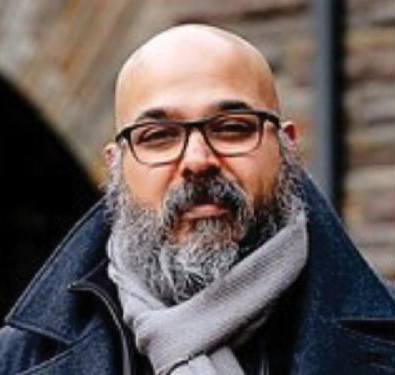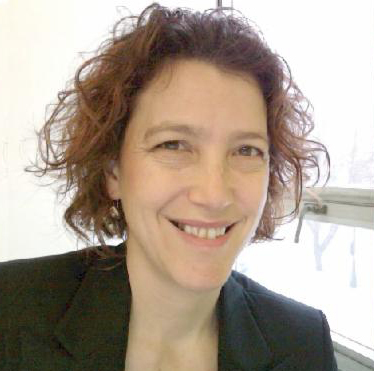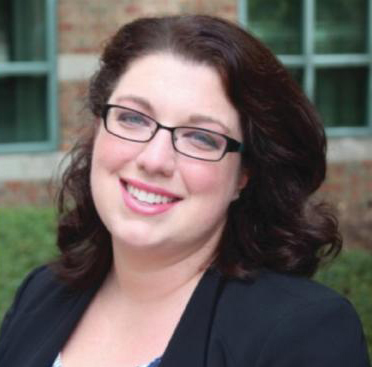Grants to Study Cognitive Aging & Brain Development
Return to Fall 2022 Transitions Newsletter
by Cheryl Deep
Major grant monies have been awarded to three IOG faculty researchers. Drs. Wassim Tarraf and Noa Ofen received a renewal of funding for key projects. Dr. Ana Daugherty is co-leading an international collaboration to develop methods to accurately measure sub-structures of the brain to improve dementia diagnosis and early detection neurodegenerative disease.
 Dr. Tarraf leads the analytics core for the Study of Latinos-Investigation of Neurocognitive Aging, which started in 2015 and is now renewed until 2027. The nationwide longitudinal study assesses cognition and decline in aging Latinos and looks for biomarkers of risk and resilience. Initial results show that many Latinos are exposed to early cardiovascular disease burden particularly diabetes which can contribute to cognitive decline and the onset of dementia. Latinos comprise nearly one-fifth of the U.S. population. The National Institutes of Health/National Institute on Aging awarded the $24.5 million renewal. The University of California San Diego School of Medicine heads the study.
Dr. Tarraf leads the analytics core for the Study of Latinos-Investigation of Neurocognitive Aging, which started in 2015 and is now renewed until 2027. The nationwide longitudinal study assesses cognition and decline in aging Latinos and looks for biomarkers of risk and resilience. Initial results show that many Latinos are exposed to early cardiovascular disease burden particularly diabetes which can contribute to cognitive decline and the onset of dementia. Latinos comprise nearly one-fifth of the U.S. population. The National Institutes of Health/National Institute on Aging awarded the $24.5 million renewal. The University of California San Diego School of Medicine heads the study.
 Dr. Ofen works in Lifespan Cognitive Neuroscience in The Ofen Lab, with appointments at the IOG, the Merrill Palmer Skillman Institute, and Psychology. She investigates structural and functional brain development across a wide age range of typically developing children and adults. Her nearly $2 million, 2016 grant "Development of memory networks in children" was renewed from the National Institutes of Health / National Institute of Mental Health for $3.4 million for an additional five years. She and her team are using Intracranial EEG (iEEG) to examine the neural basis of memory in pediatric patients who have subdural electrodes surgically implanted to treat their drug-resistant epilepsy. Findings will provide crucial insights into the feasibility of pre-surgical mapping of memory networks in children with focal epilepsy. This can influence diagnostic and therapeutic surgical approaches, and ultimately improve quality of life in patients with drug-resistant focal epilepsy.
Dr. Ofen works in Lifespan Cognitive Neuroscience in The Ofen Lab, with appointments at the IOG, the Merrill Palmer Skillman Institute, and Psychology. She investigates structural and functional brain development across a wide age range of typically developing children and adults. Her nearly $2 million, 2016 grant "Development of memory networks in children" was renewed from the National Institutes of Health / National Institute of Mental Health for $3.4 million for an additional five years. She and her team are using Intracranial EEG (iEEG) to examine the neural basis of memory in pediatric patients who have subdural electrodes surgically implanted to treat their drug-resistant epilepsy. Findings will provide crucial insights into the feasibility of pre-surgical mapping of memory networks in children with focal epilepsy. This can influence diagnostic and therapeutic surgical approaches, and ultimately improve quality of life in patients with drug-resistant focal epilepsy.
 Dr. Daugherty is site Principal Investigator for, "A harmonized medial temporal lobe subregion segmentation protocol: An essential element for dementia research," a five-year R01 grant with Ohio State University from the National Institutes of Health. The research concentrates on substructures of the brain's hippocampus, an area important for memory. These sub-structures have different vulnerabilities to dementia but are too small to see on a conventional MRI. The grant supports a multi-university team to develop MRI methods to accurately measure these sub-structures to eventually improve dementia diagnosis and early detection of neurodegenerative disease. Dr. Daugherty is leading initial protocol development and quality testing, as well as creating detailed tutorials to be freely shared with the international research community. She directs the Healthy Brain Aging Laboratory at the IOG where her team studies health factors and behaviors that shape changes in the brain across the lifespan.
Dr. Daugherty is site Principal Investigator for, "A harmonized medial temporal lobe subregion segmentation protocol: An essential element for dementia research," a five-year R01 grant with Ohio State University from the National Institutes of Health. The research concentrates on substructures of the brain's hippocampus, an area important for memory. These sub-structures have different vulnerabilities to dementia but are too small to see on a conventional MRI. The grant supports a multi-university team to develop MRI methods to accurately measure these sub-structures to eventually improve dementia diagnosis and early detection of neurodegenerative disease. Dr. Daugherty is leading initial protocol development and quality testing, as well as creating detailed tutorials to be freely shared with the international research community. She directs the Healthy Brain Aging Laboratory at the IOG where her team studies health factors and behaviors that shape changes in the brain across the lifespan.